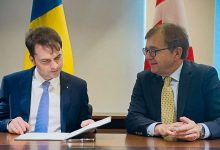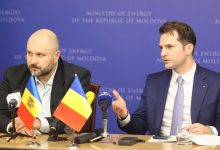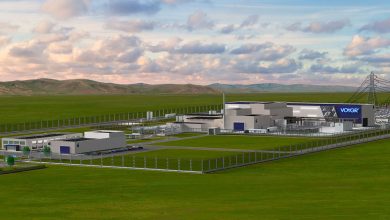60 years of European Union in the world
The voice of the European Union and its people is heard all around the world. From Asia and the Pacific to Africa, Europe and Central Asia, from the Greater Middle East to the Americas, the European Union’s diplomatic network runs wide and deep to all corners of the globe, making a difference when it comes to human rights, democracy support, migration, development, responding to crises, providing security, contributing to defence and building the resilience and capacities of societies. 140 Delegations represent the EU and its citizens around the globe, building networks and partnerships and promoting the values and interests of the EU.
Since the Rome Treaties in 1957, the European Union has enjoyed six decades of unparalleled peace, prosperity and security. European countries living peacefully side-by-side has also contributed to a more peaceful world.
The European Union is a unique economic and political partnership between 28 European countries that together cover much of the continent. The first steps were to foster economic cooperation: the idea being that countries that trade with one another become economically interdependent and so more likely to avoid conflict. In 1951, six countries founded the European Coal and Steel Community, and later, in 1957, the European Economic Community and the European Atomic Energy Community: Belgium, Germany, France, Italy, Luxembourg and the Netherlands. A further 22 countries have since joined the EU, including a historic expansion in 2004 marking the re-unification of Europe after decades of division, followed by further enlargements in 2007 and 2013.
The EU’s enlargement policy aims at preparing those European countries which aspire to join the EU – and have been given the perspective to do so – for membership. The current enlargement process covers five candidate countries (Albania, the former Yugoslav Republic of Macedonia, Montenegro, Serbia and Turkey) and two potential candidates (Bosnia and Herzegovina and Kosovo). The EU is supporting transformation and modernization to the tune of EUR 11.7 billion between 2014 and 2020. Support focuses on the rule of law, fundamental rights, economic development and competitiveness, as well as the functioning of democratic institutions and public administration reform.
The European Union and the neighbourhood
The European Union and its Member States share a common history and many common interests with their neighbours. The European Neighbourhood Policy (ENP) governs the EU’s relations with 16 of its closest Eastern and Southern Neighbours. To the South: Algeria, Egypt, Israel, Jordan, Lebanon, Libya, Morocco, Palestine, Syria and Tunisia and to the East: Armenia, Azerbaijan, Belarus, Georgia, Moldova and Ukraine. Russia takes part in Cross-Border Cooperation activities under the ENP but is not a part of the ENP as such. The ENP was launched and developed throughout with the objective of avoiding the emergence of new dividing lines between the enlarged EU and its neighbours and to increase the mutual prosperity, stability and security of the EU and neighbouring countries. It is based on the values of democracy, the rule of law and respect of human rights. The aim is to achieve the closest possible political association and the greatest possible degree of economic integration. The EU provides EUR 15.4 billion for good governance, democracy, rule of law and human rights; economic development for stabilisation; security; and migration and mobility.
To live up to growing expectations of citizens and partners, the European Union has recently taken decisive steps to further reinforce European security and defence. Based on the 2016 EU Global Strategy, a package of three key interlinked elements were defined: 1) a new level of ambition and set of concrete actions to enable fast and effective EU responses to external crises particularly in the neighbourhood, build capacity for security in partner countries and contribute to tackle threats such as terrorism, proliferation or hybrid threats to improve protection of the EU and its citizens; 2) a European Defence Action Plan including a fund to finance capability development and defence cooperation and 3) a set of proposals for reinforced EU-NATO cooperation following the historic EU-NATO Joint Declaration signed in Warsaw in July 2016.
Implementation of the package is currently underway and has made significant progress in the short time since January 2017. The March European Council took note of this progress and will revert to the matter in June.
International Cooperation and Development
Cooperation with developing countries goes all the way back to the beginnings of the European project. The EU is the only donor worldwide which gives support in all countries that are fragile or suffer from conflict. It is also the biggest development and humanitarian aid donor in the world. For example, in 2015 alone, the EU, together with its Member States invested EUR 68 billion of Official Development Assistance.
In recent years, several developing countries have experienced strong economic growth and have managed to reduce poverty. Starting in 2014, the EU is therefore phasing out direct aid to large countries such as India and other countries like Malaysia or many Latin American countries. This process is called ‘graduation’. Instead, the EU is increasingly focusing on the poorest places in the world. In the period 2014-2020, about 75% of EU support will go to these countries which, in addition, often are hard hit by natural disasters or conflict, something that makes their citizens particularly vulnerable.
2015 marked a defining year for sustainable development worldwide. World leaders adopted at the 70th UN General Assembly on 25 September 2015 a new global sustainable development framework: the 2030 Agenda for Sustainable Development having at its core the Sustainable Development Goals (SDGs).
The EU was instrumental in shaping the global 2030 Agenda, which has now become the world’s blueprint for global sustainable development. The 2030 Agenda represents a commitment to eradicate poverty and achieve sustainable development by 2030 worldwide. The 17 SDGs and their 169 associated targets are global in nature, universally applicable and interlinked.
Water and energy
The EU Water Initiative contributes to providing good quality drinking water for all and the EU Energy Initiative aims to improve access to modern, affordable, sustainable, clean and effective energy.
An attractive market to do business with
- 500 million consumers looking for quality goods
- The world’s largest single market with transparent rules and regulations
- A secure legal investment framework that is amongst the most open in the world
- The most open market to developing countries in the world
Every day, Europe exports hundreds of millions of euros worth of goods and imports hundreds of millions more.
Europe is the world’s largest exporter of manufactured goods and services, and is itself the biggest export market for around 80 countries.
European Union’s members account for 16% of world imports and exports.






